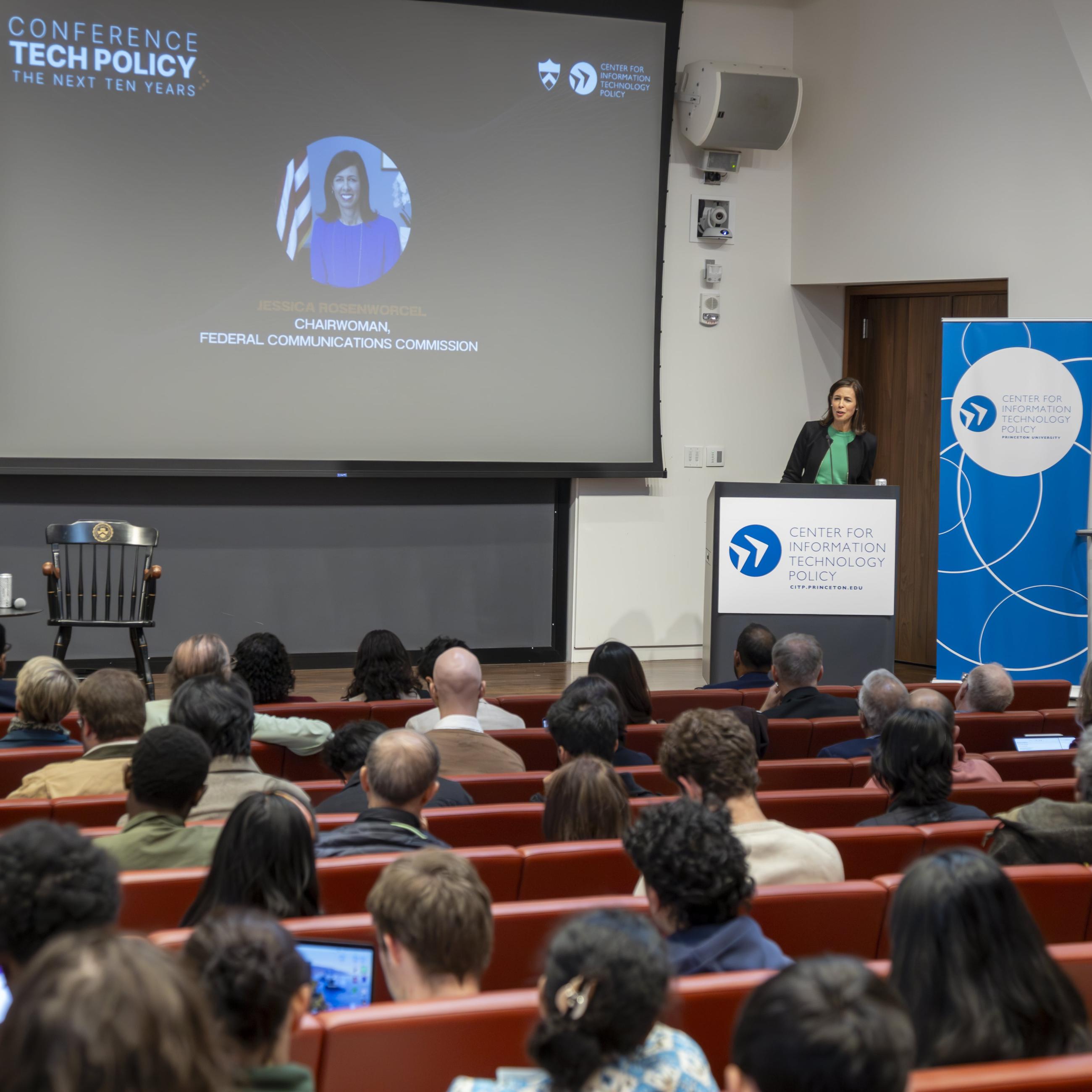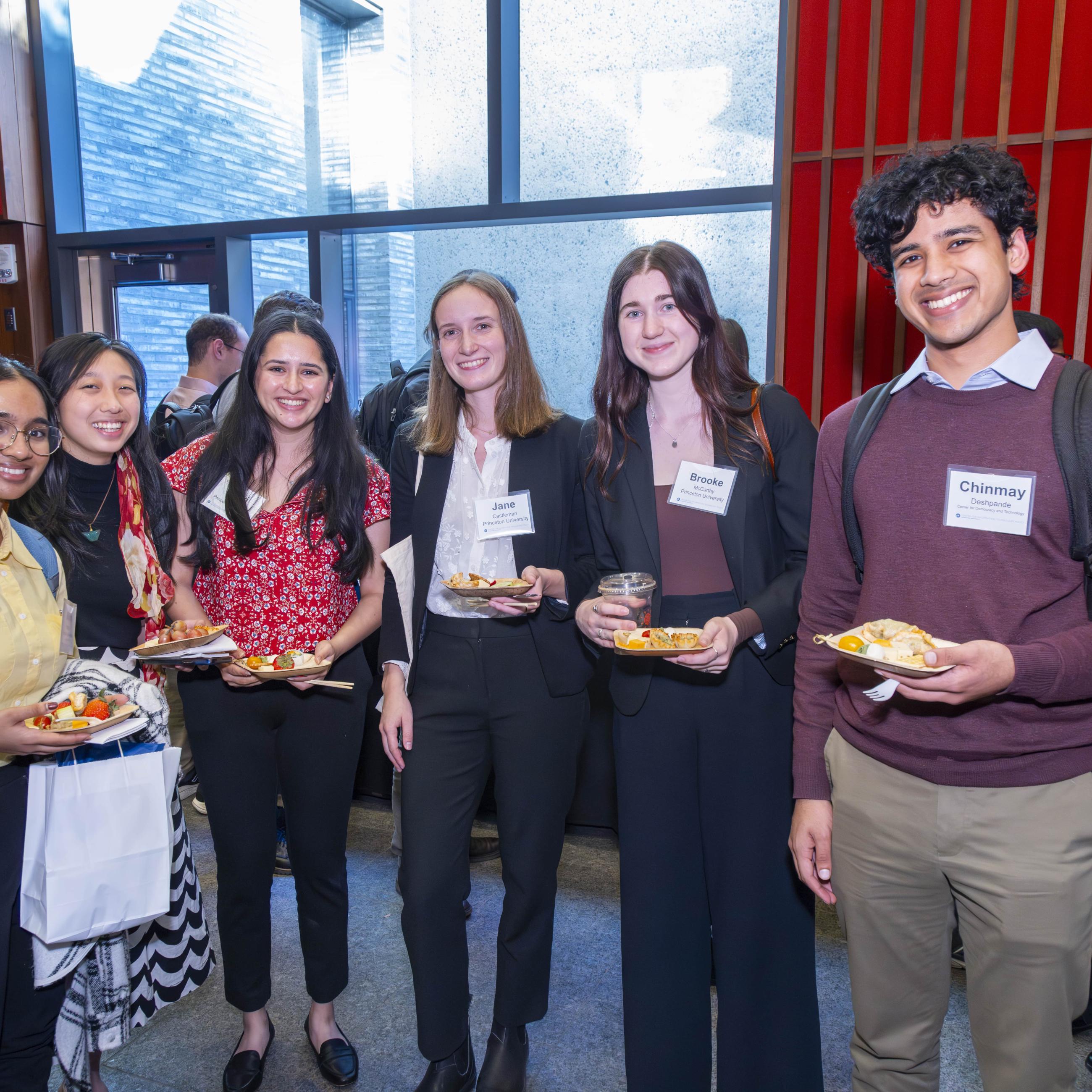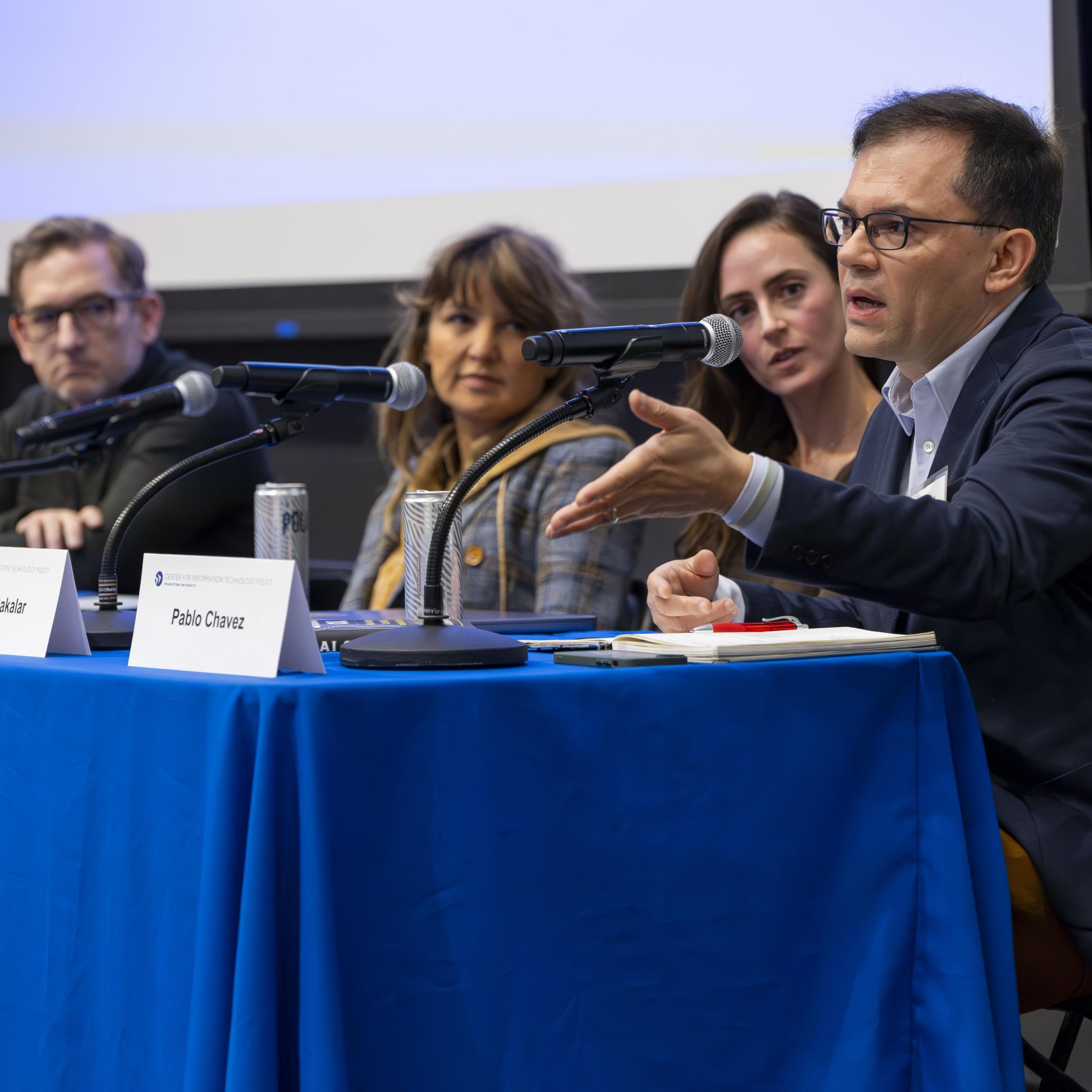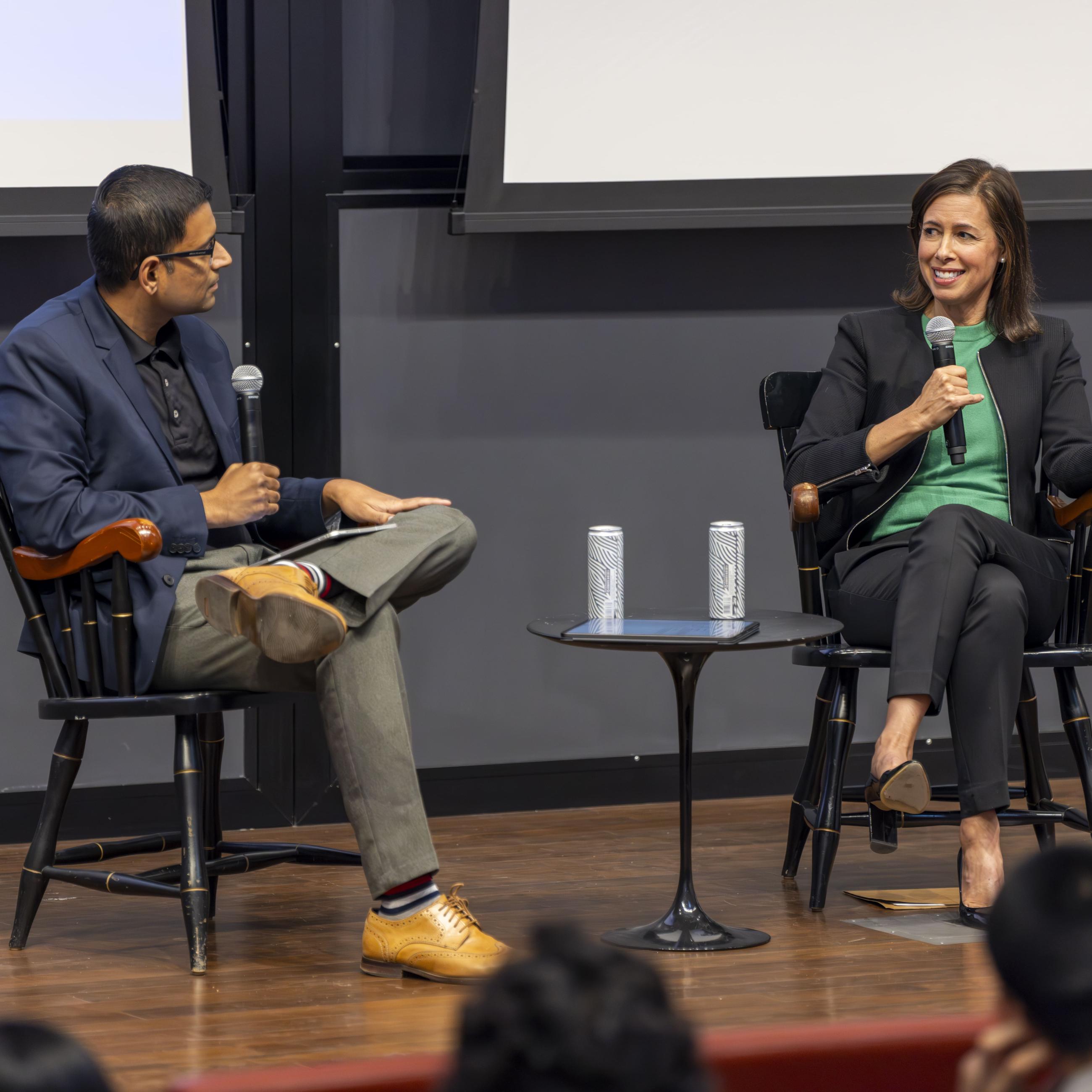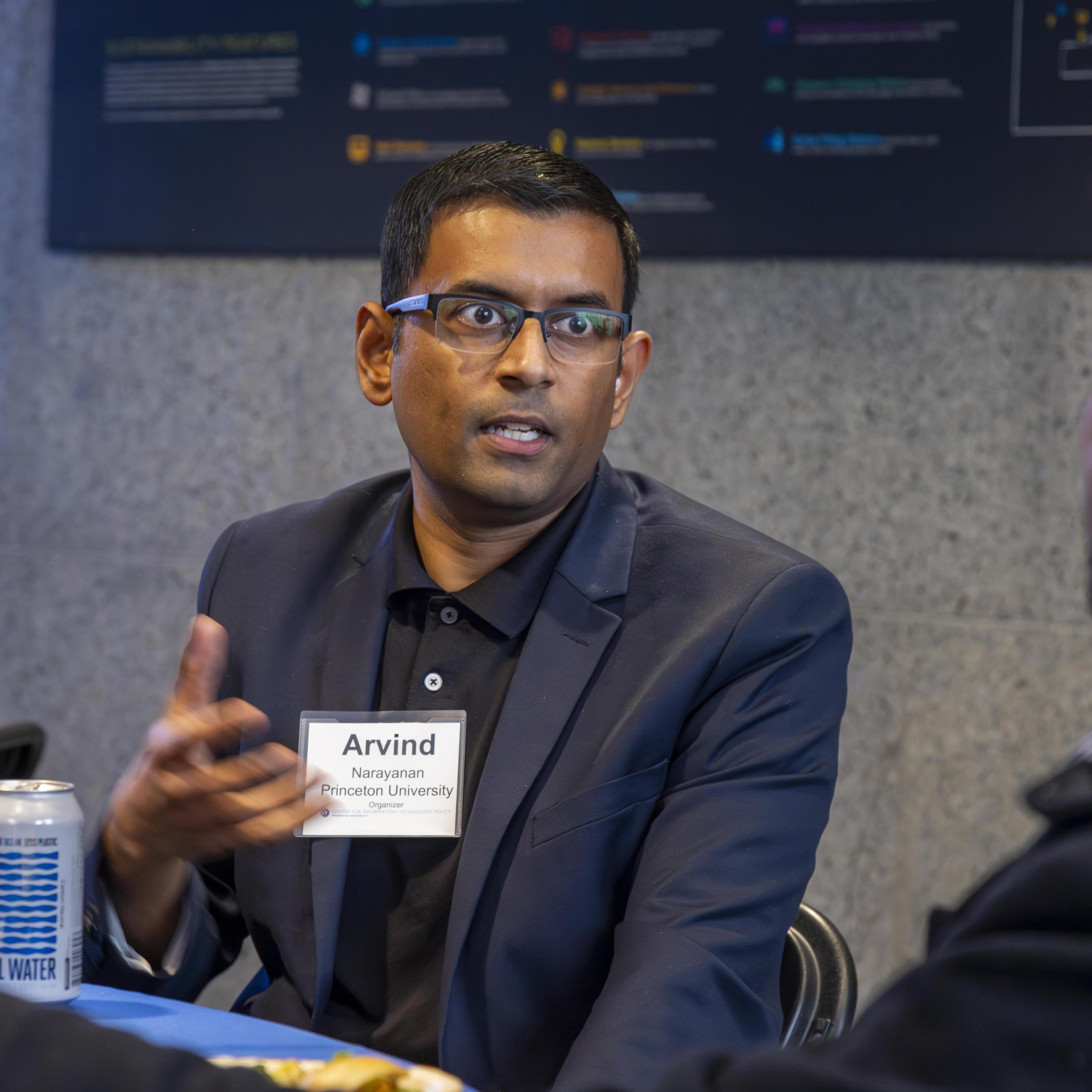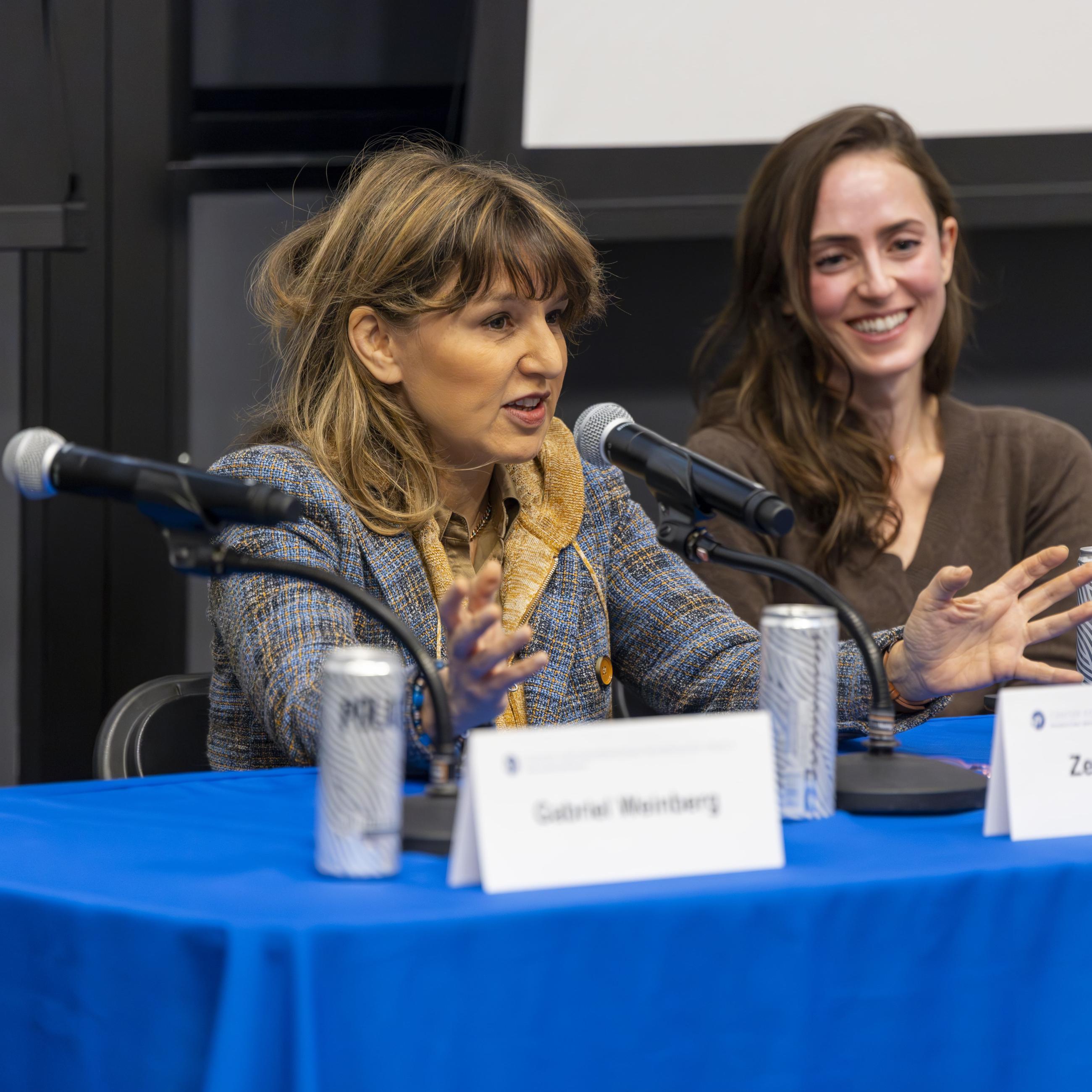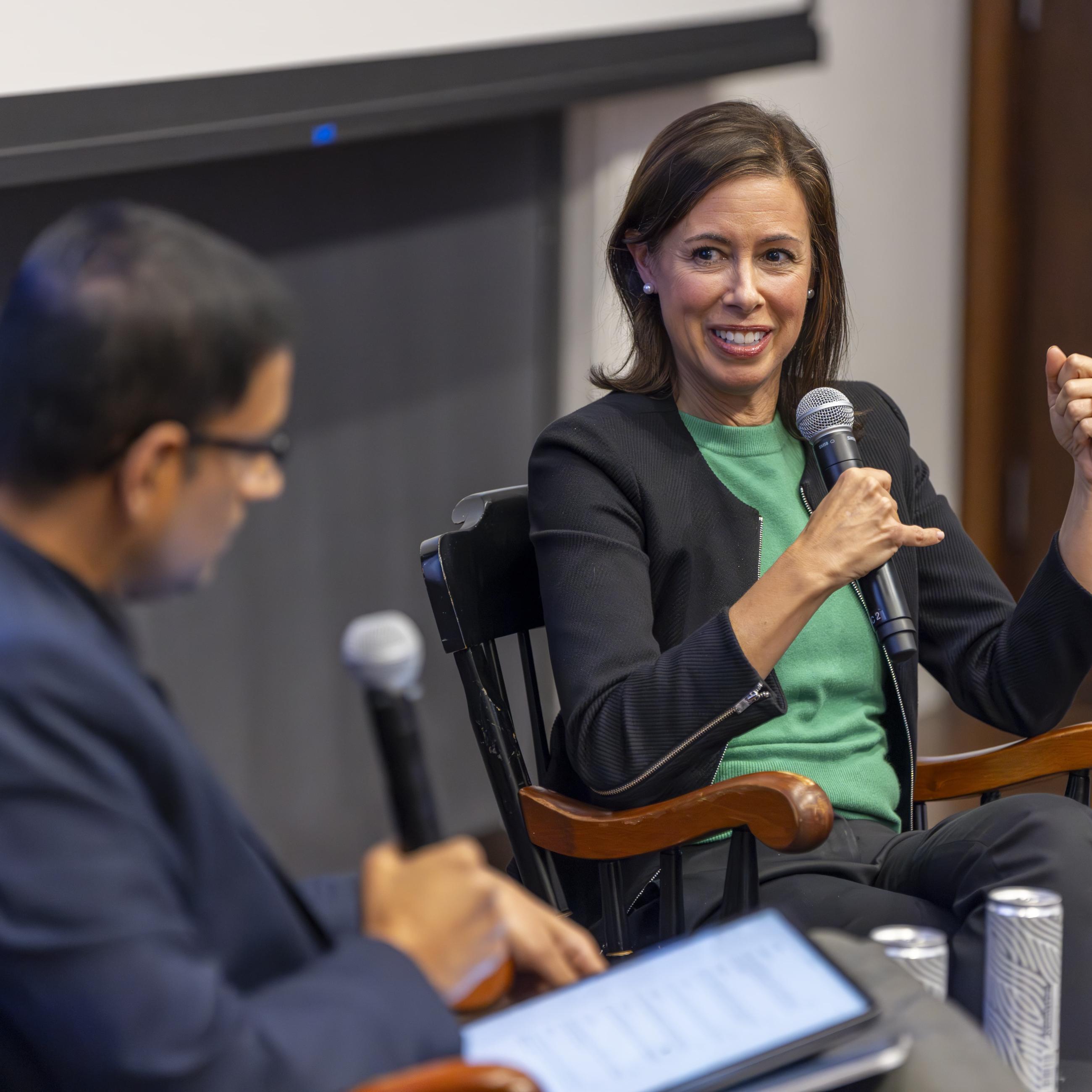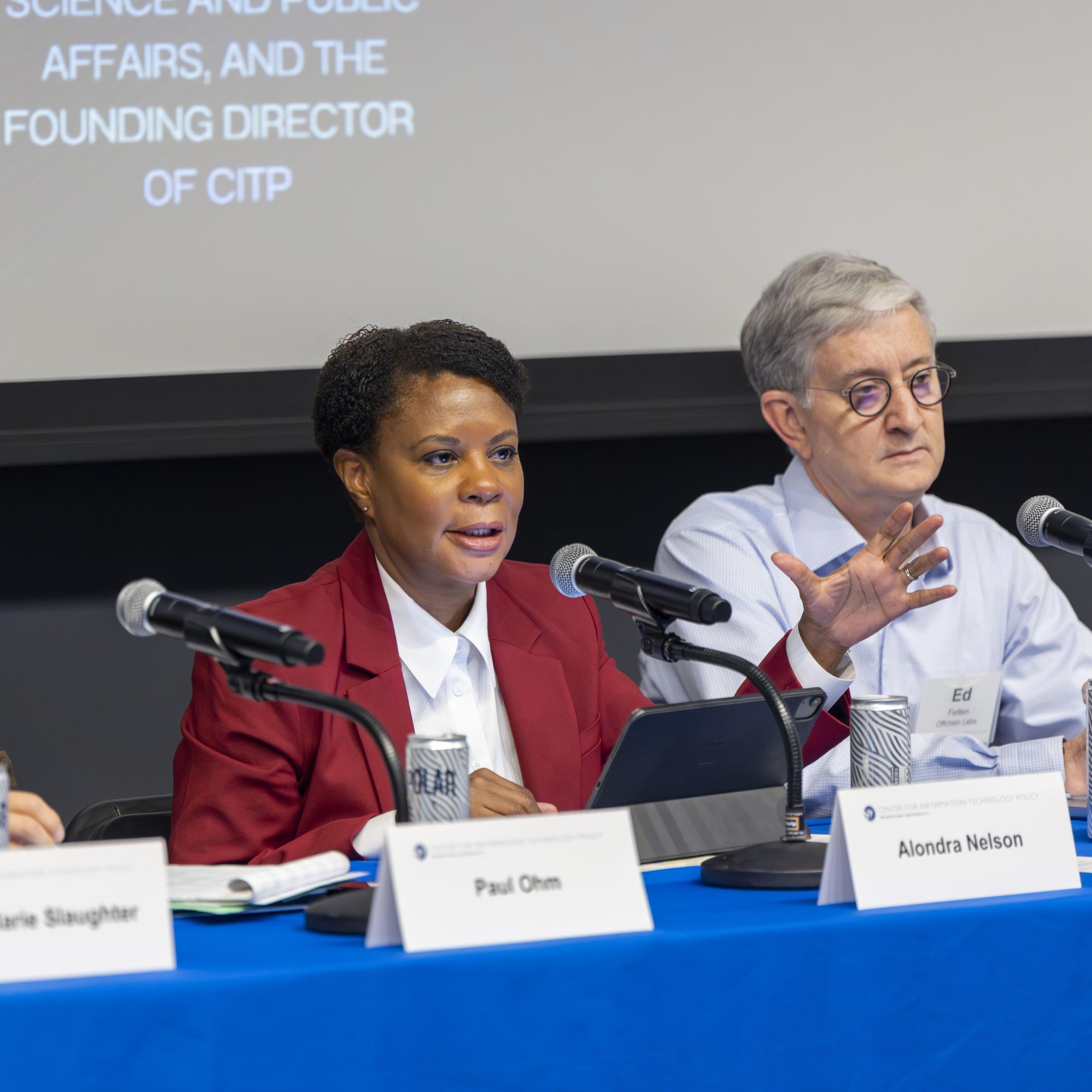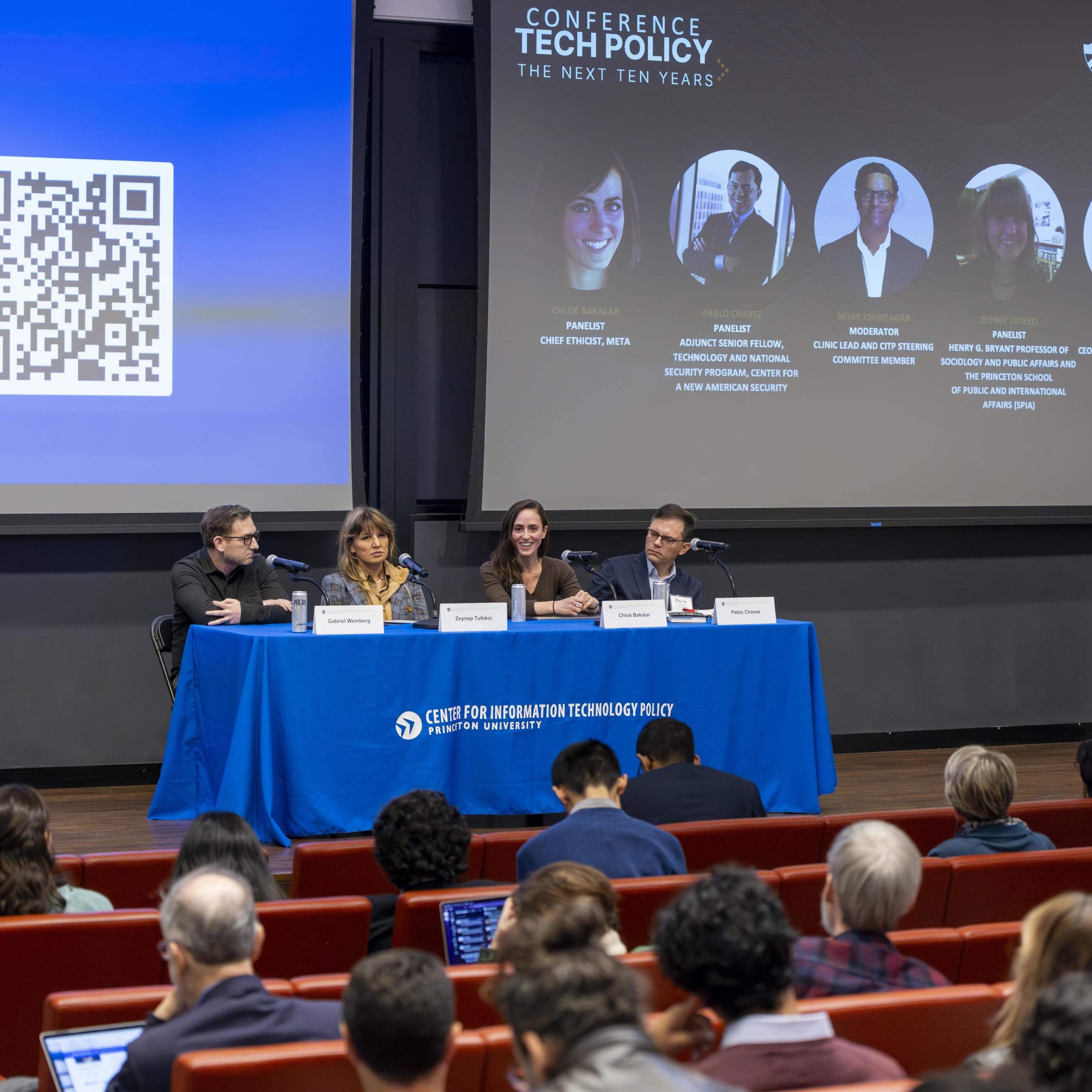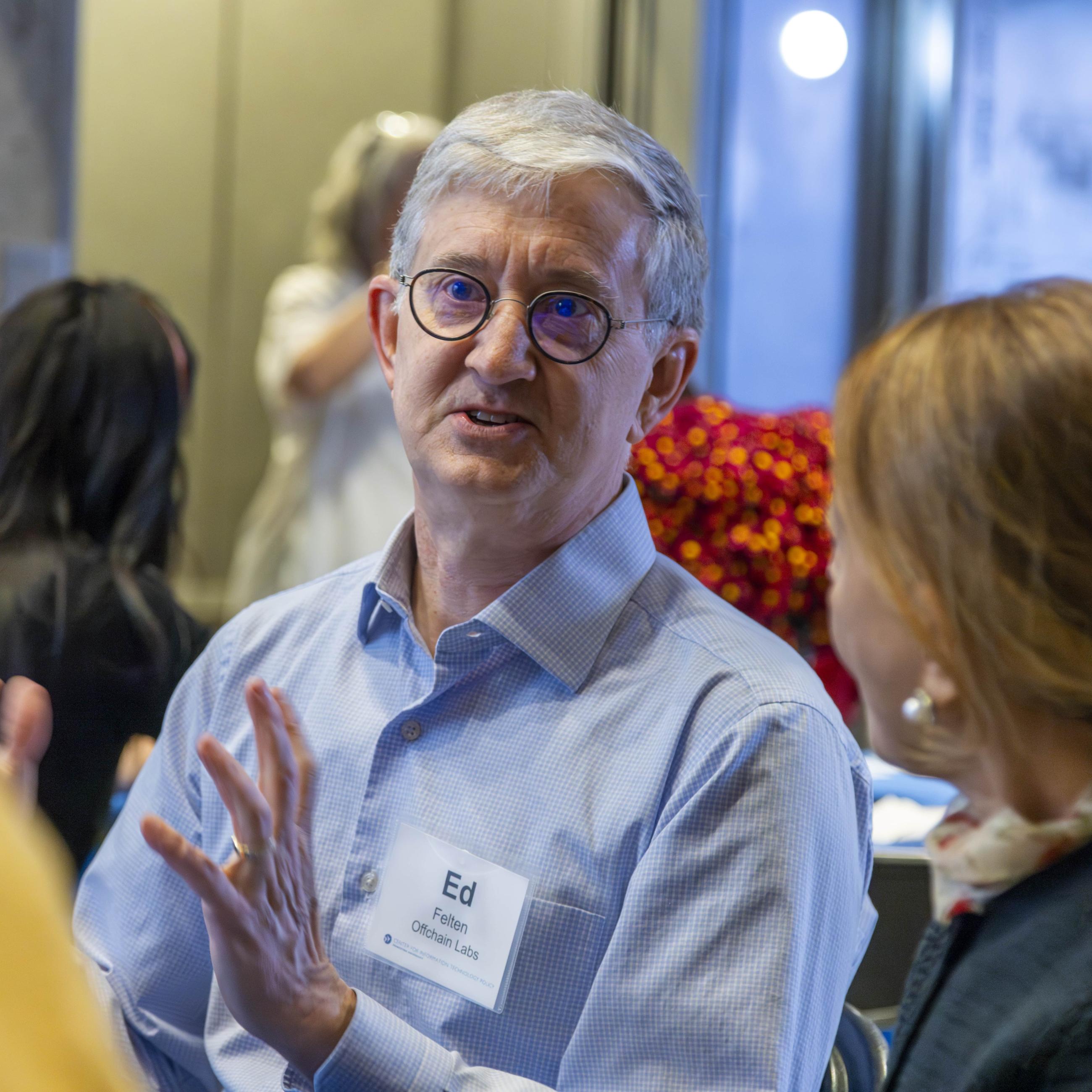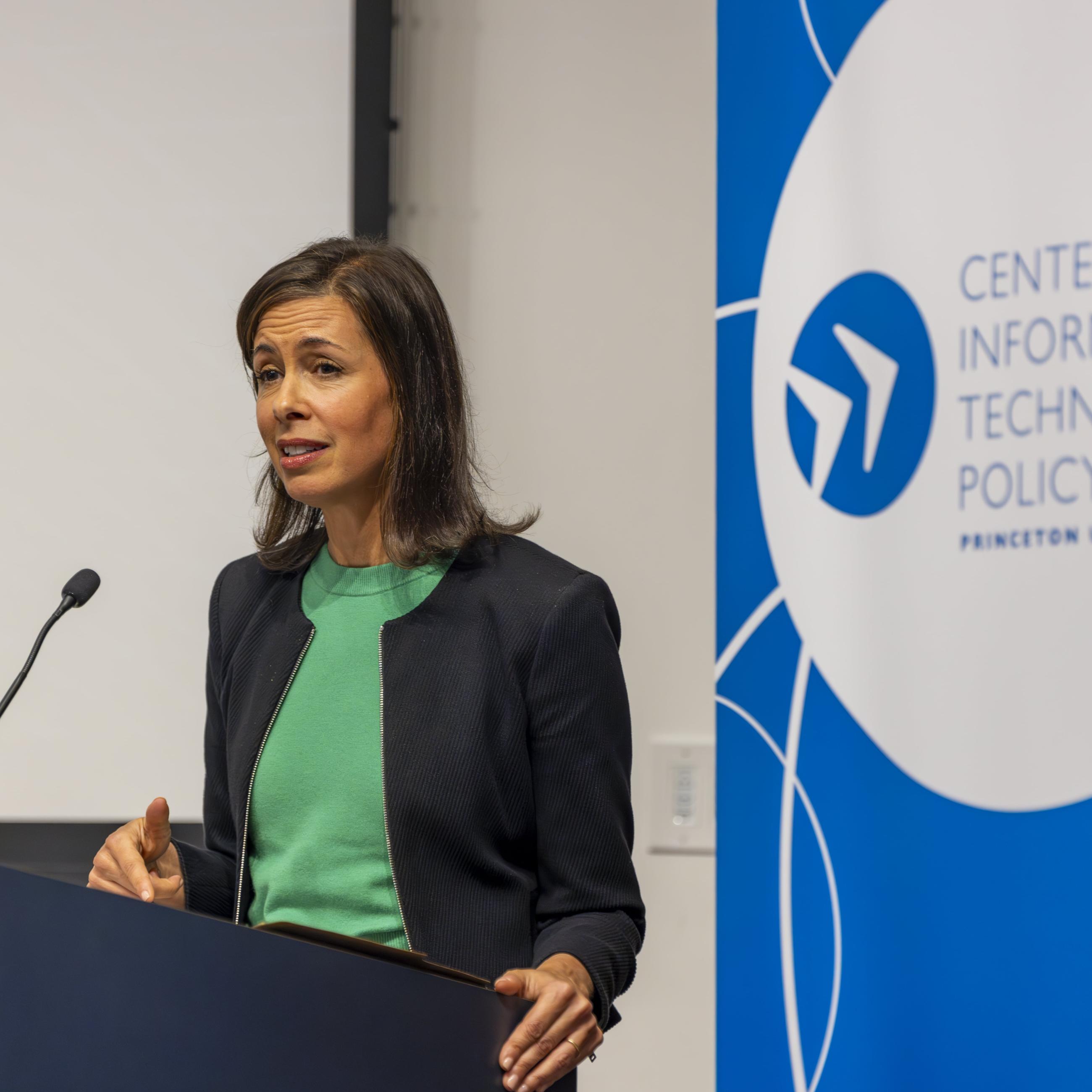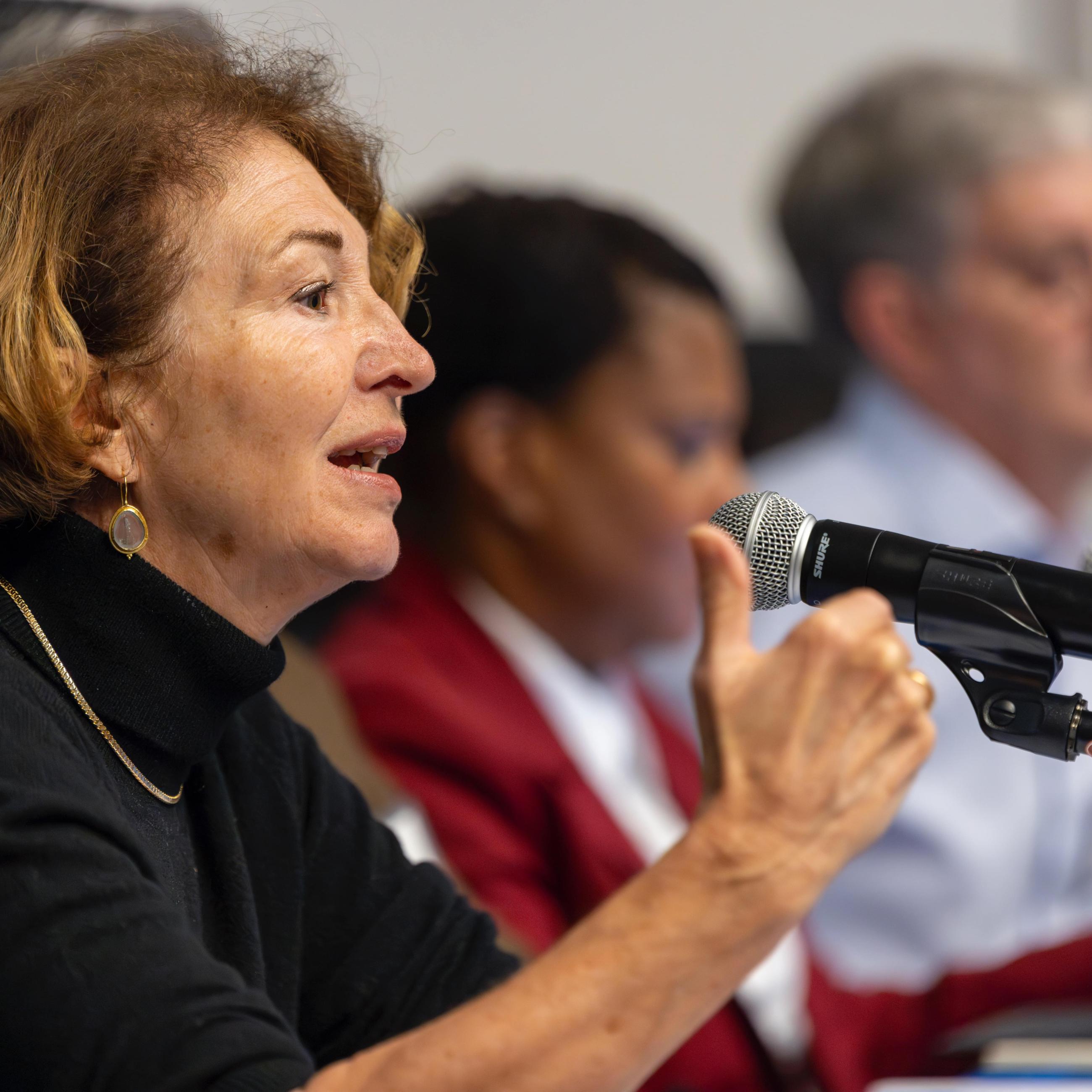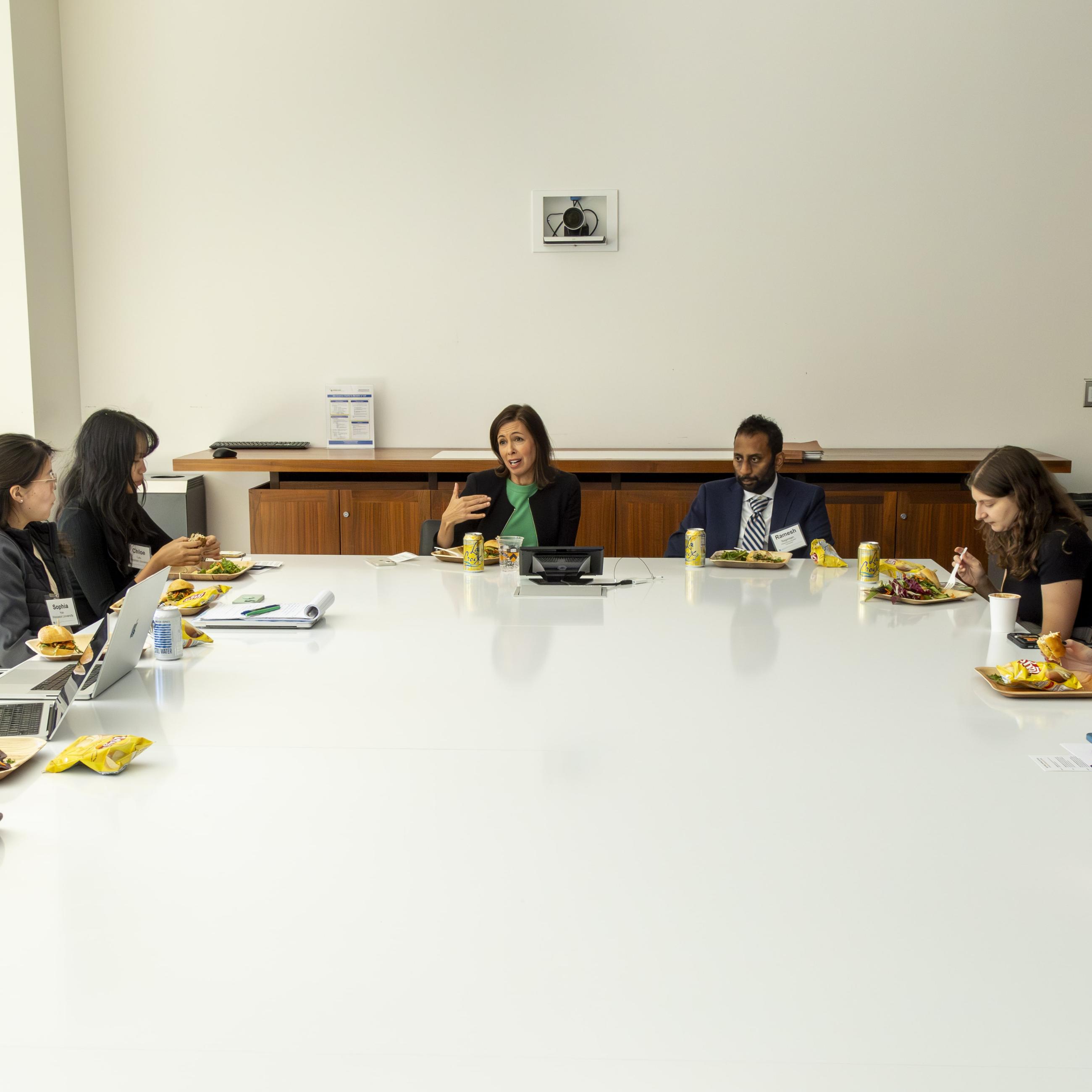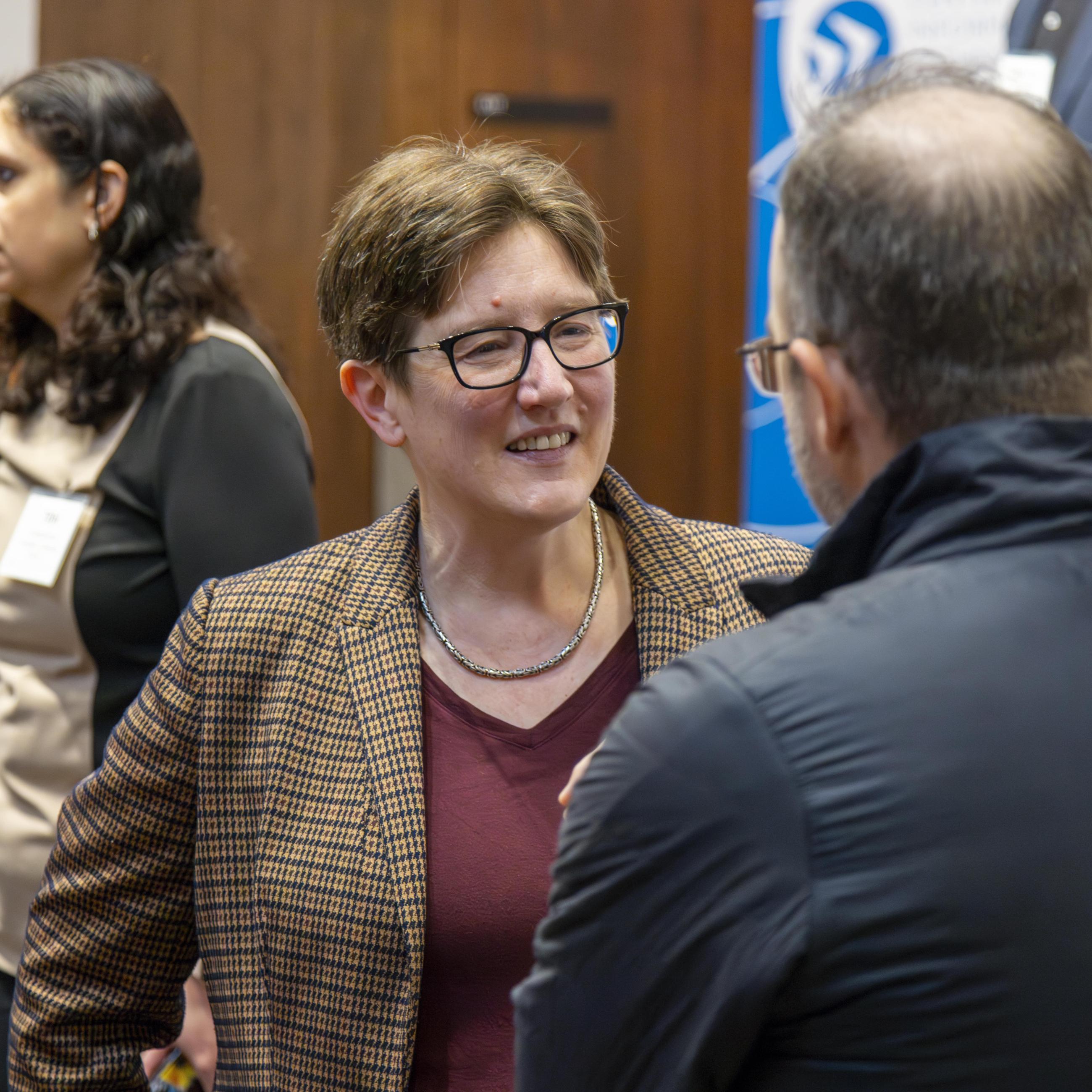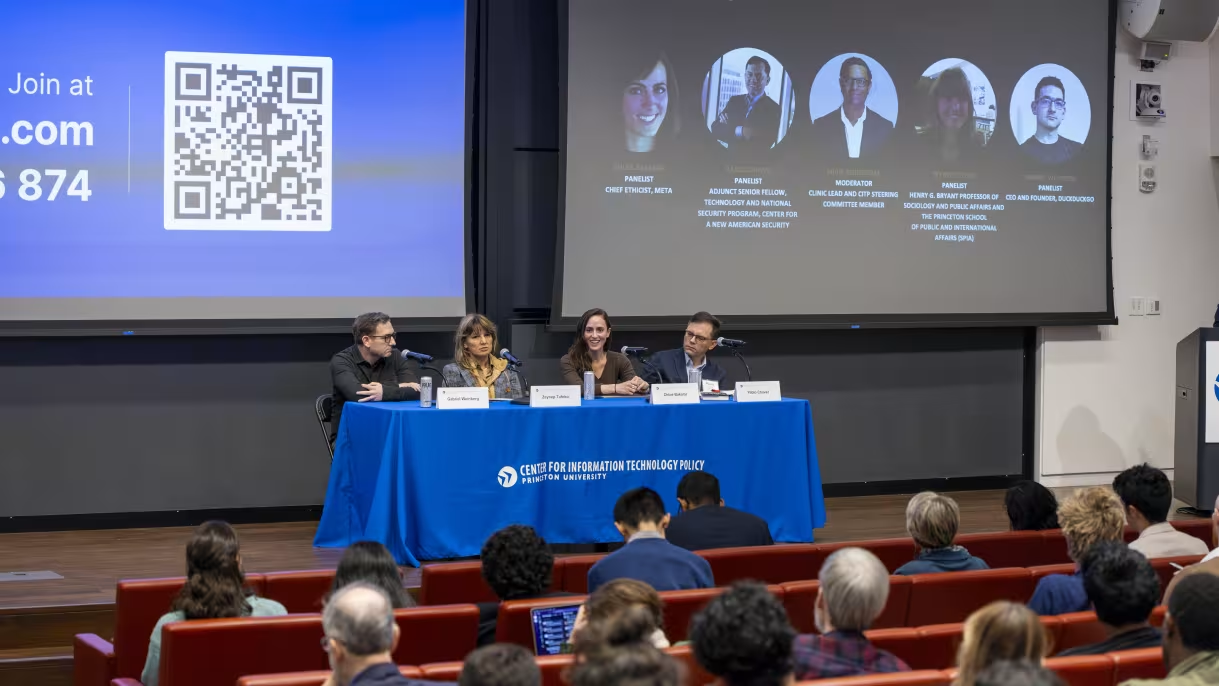

Tech Policy Conference Highlights Need for Skilled Talent Across Disciplines
As technology has become a part of nearly every moment and space in our lives, the field of technology policy has rapidly expanded. Whether the topic is healthcare, national security, education, or voting rights, technology is raising new questions about how to govern and protect citizens.
Given the challenges posed by artificial intelligence, space travel, and the growing sentience of everything from cars to washing machines, Princeton University’s Center for Information Technology Policy (CITP) held a daylong conference on October 25 to convene stakeholders who will determine how that future will take shape.
“Tech Policy: The Next Ten Years” brought together significant figures in academia, government, and the private sector to explore the agenda for tech policy and the role the U.S. will play in the global arena. Speakers included Jessica Rosenworcel, chairwoman of the Federal Communications Commission; Anne-Marie Slaughter, CEO of New America and former dean of the Princeton School of Public and International Affairs (SPIA); Chloé Bakalar, chief ethicist at Meta; and Gabriel Weinberg, CEO and founder of DuckDuckGo.
CITP is a joint initiative of Princeton’s School of Public and International Affairs and the School of Engineering and Applied Science.
A key theme that emerged from the daylong conference was the importance of having experts from a variety of disciplines, including the arts and humanities, working alongside technologists to make the difficult decisions about how best to govern technology.
“Today and in the next decade nearly every domestic and international policy issue is, at the same time, a technology policy issue,” said Alondra Nelson, the Harold F. Linder Professor at the Institute for Advanced Study. “Technology policy is no longer going to be a role only for the technologists.”
CITP is uniquely placed to foster conversation between technologists and people with backgrounds in the arts and humanities, such as lawyers, economists, and even philosophers, who will help determine how to address challenges, speakers said.
“The core of our expertise is computer science, and I think this makes us pretty unique among tech policy centers. But we are very interdisciplinary,” said Arvind Narayanan, CITP director and professor of computer science.
Bakalar, a trained philosopher who now works at Meta, which owns Facebook, said the questions raised by how AI is being used in the public sphere, such as deepfake videos produced by political candidates, require input from Constitutional scholars, economists, and security experts.
“These are not the kinds of problems that can be solved purely through engineering fixes,” she said.
The speakers also emphasized the growing importance of tech policy as a field, and they encouraged the students in attendance to explore careers in public service. Ed Felten, co-founder and chief scientist of Offchain Labs and the founding director of CITP, said one reason the U.S. government has struggled to enact good tech policy, including a federal privacy law, is a deficit of technical expertise.
“If policymakers don’t feel like they’re in the position to determine the policy, then the heads of companies and powerful interest groups will do it for them,” he said.
In her keynote address, Rosenworcel said this is an exciting time for people learning about technology to develop those skills and bring them to Washington.
“The reality is, we need people with technology skills in every single space, and I think Washington has been a little slow to embrace that,” she said.
CITP students and researchers also had a chance to share what they have been working on as it relates to tech policy. They presented on a variety of topics—from the importance of state attorneys general in shaping tech policy to the lack of transparency in online ad targeting, which can lead to discrimination.
Following their presentations, Princeton SPIA Dean Amaney Jamal praised CITP for its efforts to inform tomorrow’s policymakers on the importance of effective and equitable tech policy.
“At Princeton SPIA, we train the next generation to be effective policy makers and shapers of a more just world,” Jamal said. “Giving our students the tools to analyze and understand the many challenges and opportunities of technology is critical as we send them into the world to affect positive change.”


